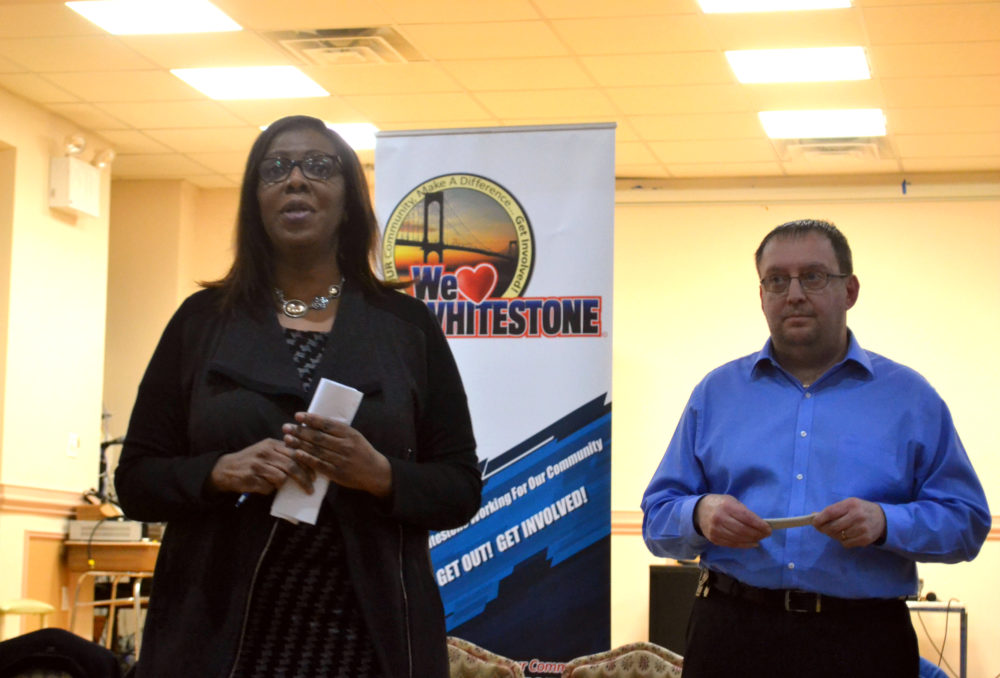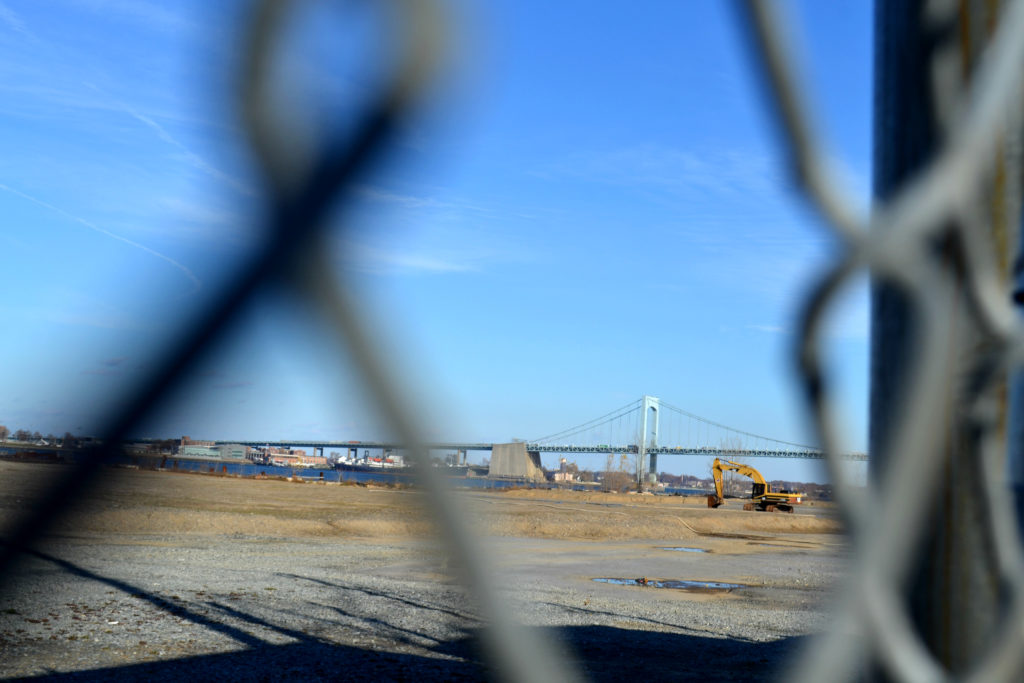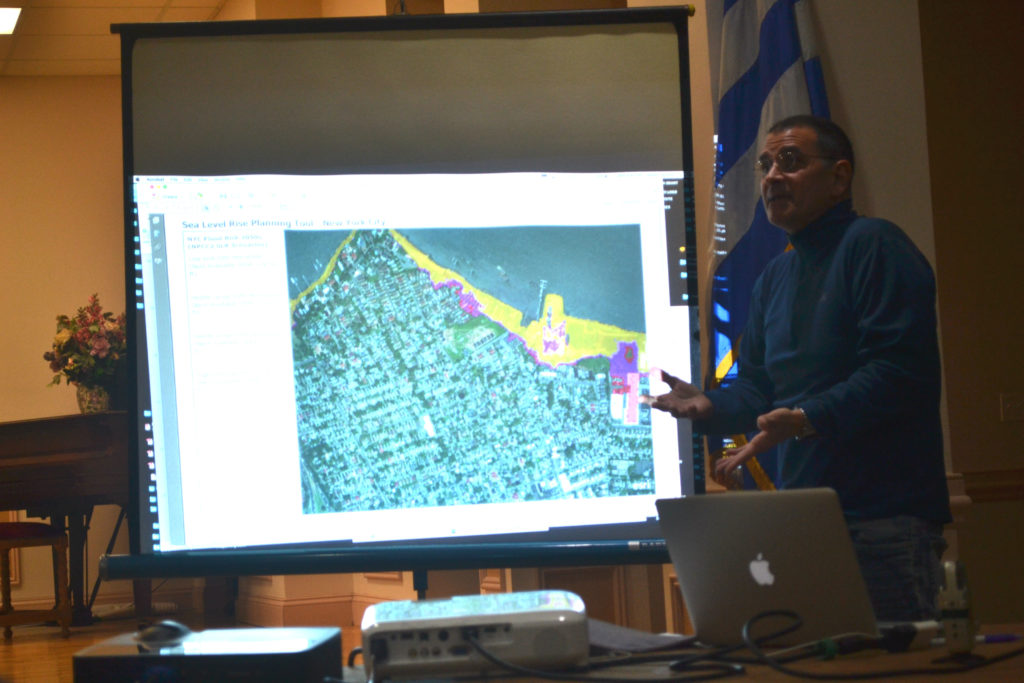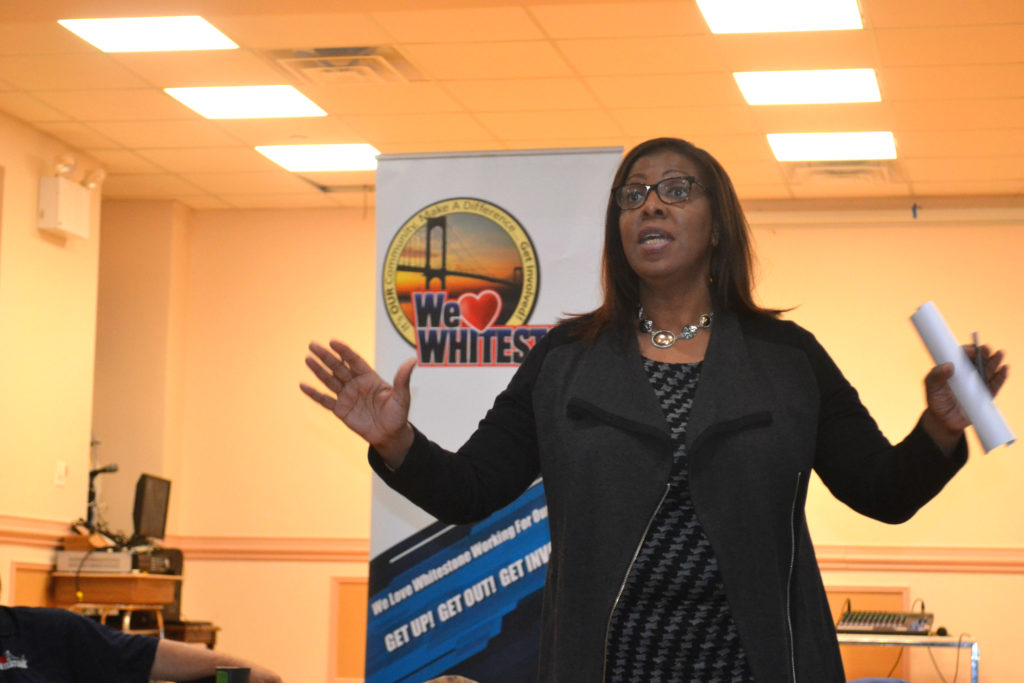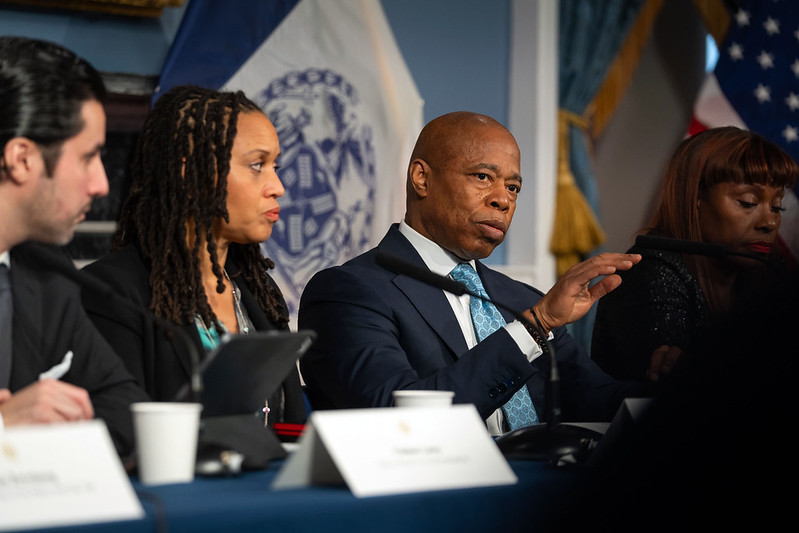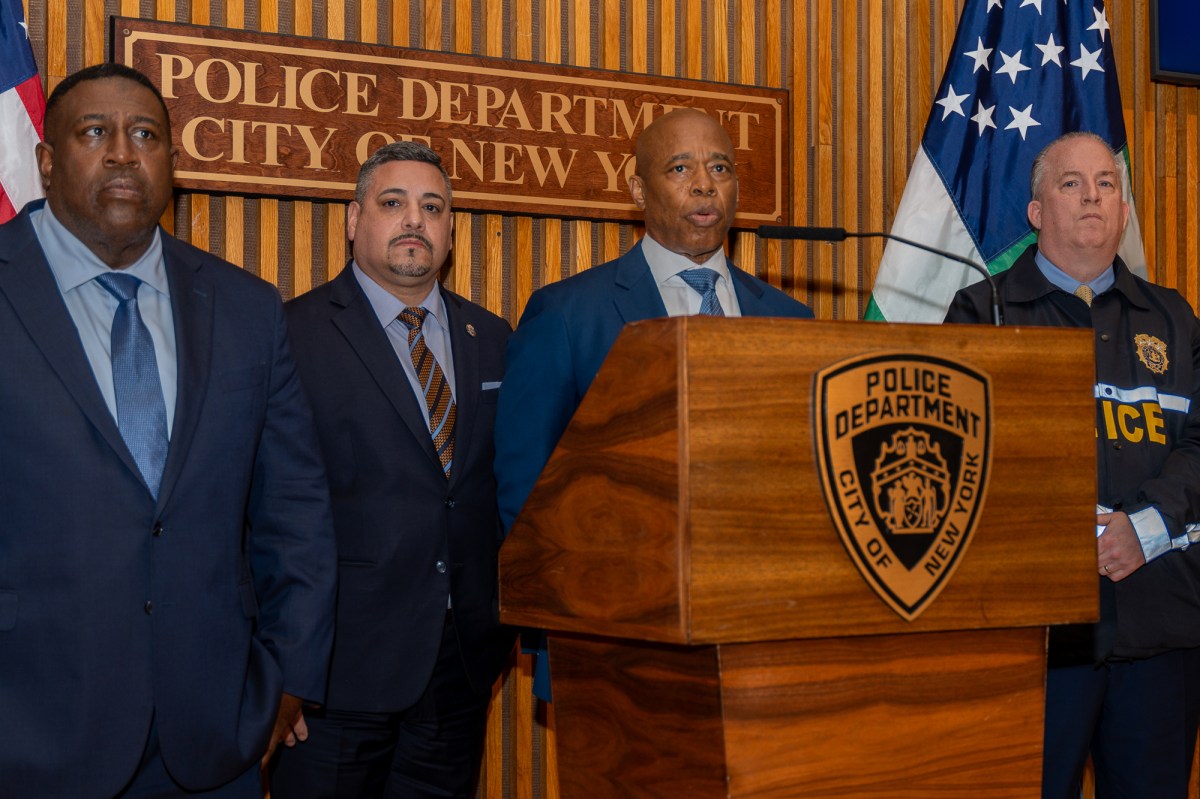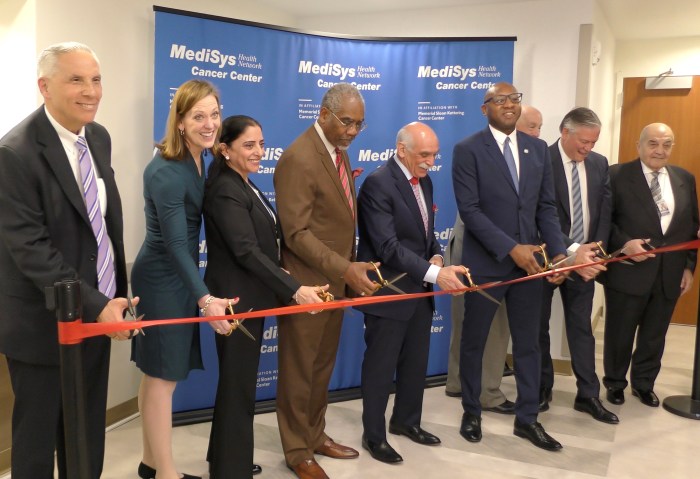Outraged over a state agency’s decision to give developers its stamp of approval for less stringent remediation work, Whitestone residents will pursue legal action — and they have the support of the city’s second-highest ranking elected official.
Dozens of residents assembled at Holy Cross Greek Orthodox Church for the We Love Whitestone Civic Association meeting on Jan. 17, where a hot button item was on the agenda: the Waterpointe property.
The 18-acre site at 151-45 Sixth Road, which was formerly an industrial zone, has been a topic of concern in the neighborhood for over a decade. Edgestone Group LLC, the site’s current owner, worked to remediate the site — which is covered with toxic soil — under the oversight of the state’s Department of Environmental Conservation (DEC) through the voluntary Brownfield Cleanup Program. Developers are slated to build 52 single-family homes at the site under a special permit issued by the Department of City Planning.
The site was originally slated for a “Track 2” residential cleanup, per a 2010 agreement signed by both DEC and Edgestone. However, in September 2017, the state agency announced through a “fact sheet” it had modified the cleanup agreement with developers: the site was now slated to achieve a less stringent “Track 4″ cleanup. While normally part of commercial development projects, Track 4 can be used for restricted residential use under particular DEC guidelines, according to the agency.
Residents met the news with outrage. At a Community Board 7 meeting on Dec. 18, members claimed DEC approved the change without their consent. A DEC spokesperson denied that claim, stating the agency has “communicated on several occasions” with local leaders.
Despite protests, on Dec. 29 DEC issued the owner a certificate of completion (COC) for their Track 4 remediation work at the site. The decision prompted a local call to action.
At the Jan. 17 civic meeting, Board 7 Environmental Committee Chairperson James Cervino outlined his concerns with the change in track and the toxicity of the soil left behind. He questioned the potential health impact on future residents. Due to the lesser track, Cervino said, more toxins are permitted to be left behind.
“It’s not restricted residential,” Cervino said. “It’s in the chapter of restricted residential, but it’s really commercial chemistry.”
Projected sea level rise is also a concern for the site, the marine pathologist noted.
Robert LoScalzo, a local resident, took issue with another aspect of DEC’s decision. Allowing single-family homes to be built on the Track 4 land goes against the state agency’s own regulations, he said. This was reflected in the Sept. 20 fact sheet, which stated the agreed upon single-family homes would not be permissible at a Track 4 site.
Two days later, after Community Board 7 took notice of the language, DEC issued a revised fact sheet, which stated the single-family homes would be permissible because developers have plans to create a “single certifying entity” to oversee the entire site.
“This replacement fact sheet is deliberately scrubbed of all of the previous references of the prohibition of single-family housing,” LoScalzo said. “The facts seem to be changing … They had an initial fact sheet, they revised the fact sheet: but the regulation remains the same.”
“We’re dealing with a state agency that has regulations,” civic president Alfredo Centola said. “Correct me if I’m wrong: but a regulation is the law … It’s their rule.”
After hearing Cervino and LoScalzo’s presentations, Public Advocate Letitia James said she believes the community has found the “smoking gun.”
“Clearly, there’s a number of legal issues: there are conflicts involved, there’s capricious activity,” James said. “We need to prepare for a litigation … The developers in this town and this city have too much power. They have hijacked our government.”
James said the next steps will be to contact an attorney, conduct an independent study and prepare for a litigation.
State Senator Tony Avella, who was also in attendance, said the Waterpointe site was another example of the city’s “rush to development.”
“We’re building on every piece of land possible without any forethought, ‘Does this actually make sense?” he said. “I hate to say this, but I pity the homeowner who buys this home.”
Avella said he and Assemblyman Daniel Rosenthal are slated to meet with DEC Commissioner Basil Seggos next week to discuss their concerns.
The Waterpointe site was originally purchased for $25 million in 2005 by developer Bayrock Group, who later went bankrupt after they were fined by DEC for transporting toxic soil into the already contaminated site.
After purchasing the land in 2011 for $11 million, Edgestone developers originally sought to build over 100 residences at the site. They later changed their plan to 52-single-family homes after protests from the community.

